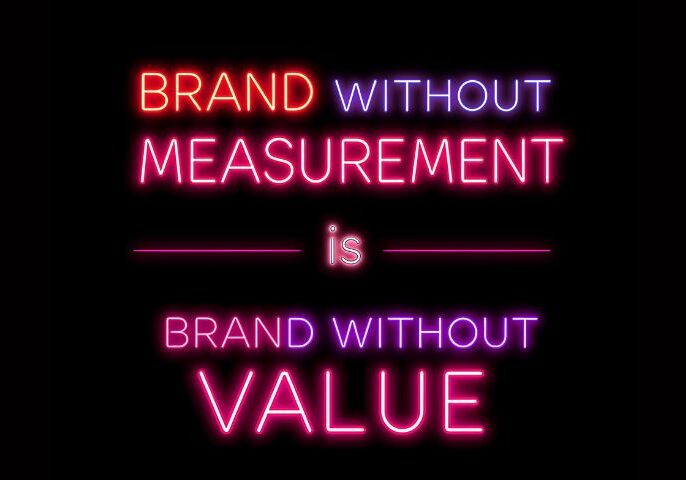Let’s sit down for a second and chat about branding.
If you own a business, you also own a brand, although you may never have thought about it beyond the initial logo that you came up with in your company’s infancy. This is the moment when we’re going to tell you that a brand goes way beyond your logo; it’s the who, where, why, what, and when of your business. Consider it to be the beating heart, soul, and personality of your enterprise. This is why you need a brand strategy (and that doesn’t mean just sitting down and designing a new logo).
What is a brand strategy?
A brand strategy encompasses every part of your business and is designed to provide concrete evidence that your brand is achieving its goals (we’ll get to goals later). It could be that you want to highlight how that special difference is from your competitors or that you want to build a loyal customer base. You could also be considering adding emotional significance to the products you offer. This concept can be difficult to get your head around, but an easy way is to consider why it is that Nusr-et in London can charge £thousands for a steak and to then compare it to Miller and Carter, it’s about perceived added value.
So, basically, brand strategy is about creating and maintaining reasons for people to buy from you and to keep buying from you.
What’s in a brand strategy?
The ultimate aim of branding is to make your business likeable, and it combines numerous factors in doing so. If you think about the factors that make you choose a partner or a best friend, there should be so many that it’s difficult to pinpoint just one, and that’s the same for branding businesses. You don’t want your company to appear one-dimensional. Instead, you need to focus on what your big idea is and then pull in all the things that make your business special.
What’s your purpose?
This should be the easiest part. What product or service do you offer, and what benefits does it provide? How can it improve the world? As an example, imagine a self-tanning product. Fake tan can be a bit of a nightmare; it can stain your bedsheets and clothes and smell of burnt biscuits, so if there was a product that avoided either of those, that would be a game changer and would be a tangible benefit. Benefits can also be related to ethos. This is Unfolded, which is a great example of how a company’s ethics and processes can shape a whole brand.
What are your ambitions and values?
We’re going to carry on with This is Unfolded for a moment. Their ambition is to flip the fast fashion industry on its head by making ethical and affordable clothes bought directly from the manufacturers. A key part of their vision is to launch their ranges with a money-off sale, increasing prices as time goes on and, hopefully, reducing waste while educating their customers. They know what they want, they know how they plan to make a difference, and they explain it in detail across all of their literature (without sounding preachy).
This ties in perfectly with values. Your brand should have a moral compass which is endorsed by everyone who works within the company. Following this compass helps with every aspect of the business, from recruitment all the way through to choosing stakeholders to work with.
How is your offering different from your competitors, and where do you sit in relation to them?
One of the first questions we ask our clients is, “What is your USP?”. Every business has a unique selling point, by the way if you look through our website you’ll notice that we have ours listed on every page. It’s the thing that makes people want to buy from you, and that makes you stand out from your competitors. It’s what makes you special. It could be the story behind your brand, or the amazing people who work within it, it could be the culture of the business, the list is endless.
What is your brand’s character?
We mentioned tone of voice earlier, and this is where we explain it. Every brand has a character and a personality, and these are what make your target market want to buy from you. The brand may be finickity and like attention to detail (perfect for an engineering or bespoke manufacturing company), it may be romantic (ideal for wedding venues), it may be straight-talking and to the point (we think that’s a winner for integrated marketing agencies).
To discover your brand’s character, you need to sit down and imagine that it is a human. How old would it be? Is it a particular gender? Would you take the brand out for a casual pint, or would it prefer a kale smoothie? We know this sounds a bit silly, but it’s really incredibly important.
It’s all about the experience.
At the end of the day, branding is about creating an experience for your target audience, and technology has created the ability to see if you are hitting the right demographics. If you consider some of the most well known brands, take McDonalds as an example, while their offering and focus has remained the same (affordable fast food for the family), their advertising has evolved to pull in each new demographic and their focus is always about the emotional experience connected with consuming their food.
It’s time for you to talk to some branding experts.
You may have just read this and thought, “Well, it’s my company, so I obviously know my brand”, but trust us, you probably don’t. Working within a business means that you can be too close to achieve an unbiased overview of what works and what doesn’t. It also means that you may have overlooked some unique USPs. To give an example, a local takeaway which already had a very solid unique selling point, hadn’t noticed that the processes they used for kitchen waste (they recycled and donated as much as possible) actually created an alternative reason to buy from them.
One of NAMA’s USPs is that we like to get involved in every part of our client’s businesses as an external marketing department. This gives us a holistic overview of everything that makes a business special and enables us to build successful and concrete brand strategies. That’s our expertise and the reason that our loyal client base keeps coming back.
If you’d like to talk to some experts about how to give your business the brand and character it deserves, we’d love to hear from you.






